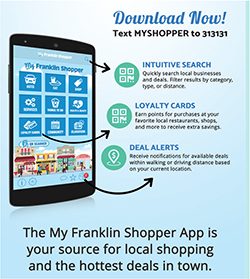The importance of small businesses to the economy cannot be overstated. Though national chains often garner publicity, local businesses are equally, if not exceedingly, worthy of attention.
What defines a small business as “small” varies significantly, but these businesses are generally privately owned and generate far less revenue than big corporations. General consensus also defines small businesses as companies with fewer than 500 paid employees, according to the U.S. Small Business Administration.
Here’s a deep look at why small businesses are so vital, and why consumers should direct more of their purchasing power to smaller companies rather than the big box retailers and other national chains.
1. Autonomy And Diversity
The layout and offerings at national chains will be identical whether you live in the mountains or at the beach. Big box stores follow a consistent marketing strategy and look the same regardless of where they are located. That familiarity can come at the cost of variety. On the other hand, an independent business offers the products and services that are reflective of the customers and the community they serve.
2. Local Hiring Strategy
Certain big box retailers will hire local residents, but hiring policies may push for promoting from within the organization. This could mean relocating an employee rather than bringing in someone from the community who may be more in tune with local sensibilities. Small businesses may be more inclined to hire residents they know and keep hiring centralized to the local area – something that keeps more resources and money in the community.
3. Adaptability And Change
Local businesses can move more quickly to respond to economic factors that require change. Since they are focused more on the needs of their customers rather than stockholders, changes can be implemented rapidly without having to go through red tape, meetings and updates to corporate policies. Changes also can be customized to the local community at large.
4. Investing In The Town
According to the financial resource Financial Slot, shopping at locally owned businesses rather than big box retailers keeps more money in the community. Local property taxes and other taxes paid by the businesses go right back into the community. This helps raise overall value for homeowners and can even reduce their taxes. The funding helps keep police, fire and school departments functioning properly.
5. Turnover Is Greater
While no one wants to see a small business fail, that fate is sometimes unavoidable. However, that turnover helps teach communities what was done poorly and helps others learn from those mistakes. It also means fresh businesses will come in and replace the old, driving new growth, opportunity and competition that keeps prices competitive.
The benefits of a thriving small business sector are numerous. Consumers can do their part by patronizing these firms more frequently.







 · Wine tasting: Find a local winery that offers tours and other wine-tasting experiences. Many areas of the country not particularly known as meccas for wine are still homes to local wineries. Treat a loved one to a day at a nearby winery or vineyard, bringing along some snacks, such as bread and cheese, to pair with the wines.
· Wine tasting: Find a local winery that offers tours and other wine-tasting experiences. Many areas of the country not particularly known as meccas for wine are still homes to local wineries. Treat a loved one to a day at a nearby winery or vineyard, bringing along some snacks, such as bread and cheese, to pair with the wines. · Head in the clouds: Book a trip aboard a sight-seeing plane, balloon or helicopter for the high-flying thrill-seeker on your holiday shopping list. Contact a nearby airport or sightseeing company to find out what is available. Some tours circle national monuments and points of interests, providing more bang for the buck.
· Head in the clouds: Book a trip aboard a sight-seeing plane, balloon or helicopter for the high-flying thrill-seeker on your holiday shopping list. Contact a nearby airport or sightseeing company to find out what is available. Some tours circle national monuments and points of interests, providing more bang for the buck.



 · St. Martin: Also known as St. Maarten, this paradise offers two different cultures for the price of one. The island shares French and Dutch territory status. Visitors who like to eat well and party into the morning often find St. Martin an ideal destination.
· St. Martin: Also known as St. Maarten, this paradise offers two different cultures for the price of one. The island shares French and Dutch territory status. Visitors who like to eat well and party into the morning often find St. Martin an ideal destination.

 Set up an account and track spending
Set up an account and track spending
 · Waders: Anglers sometimes need to get up close and personal with their prey. A sturdy pair of breathable waders is ideal for those who venture out of the boat or off of the coast.
· Waders: Anglers sometimes need to get up close and personal with their prey. A sturdy pair of breathable waders is ideal for those who venture out of the boat or off of the coast.

 Time
Time


